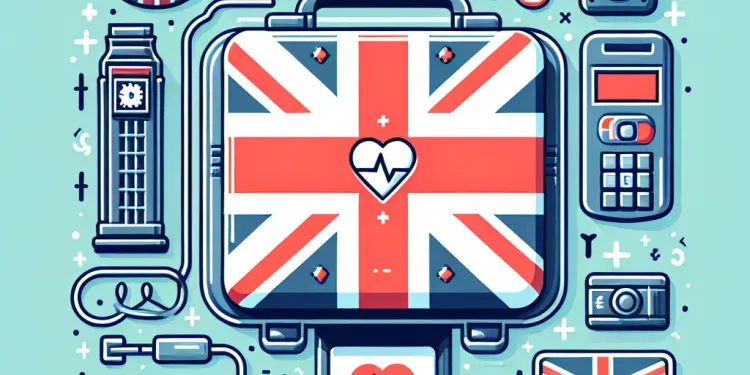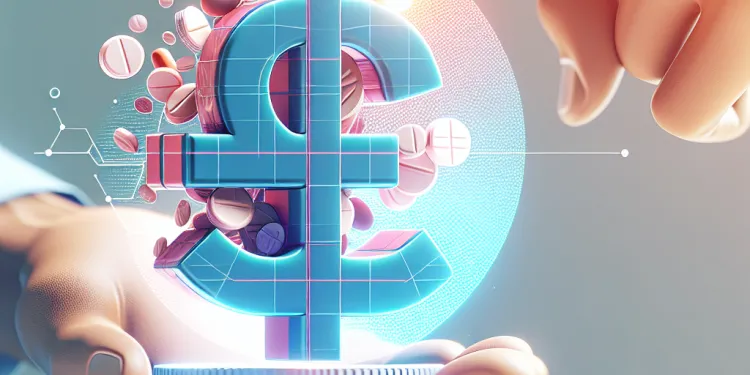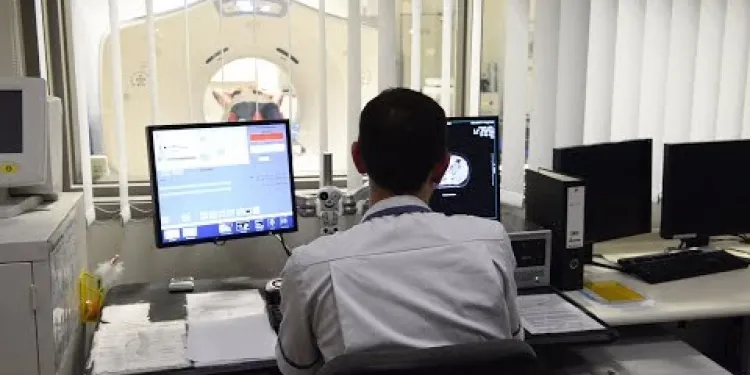
Find A Professional
More Items From Ergsy search
-

What is the difference between ketamine and esketamine?
Relevance: 100%
-

What are the common side effects of ketamine?
Relevance: 96%
-

How long do the effects of ketamine last?
Relevance: 88%
-

Does ketamine have long-term effects?
Relevance: 78%
-

How does ketamine work?
Relevance: 77%
-

What precautions are necessary when using ketamine?
Relevance: 72%
-

What is Ketamine?
Relevance: 72%
-

What is ketamine infusion therapy?
Relevance: 71%
-

Is ketamine safe for everyone?
Relevance: 70%
-

How is ketamine different from traditional antidepressants?
Relevance: 68%
-

What conditions is ketamine used to treat?
Relevance: 67%
-

What should I do if I experience severe side effects from Wegovy?
Relevance: 66%
-

What are the common side effects of Ozempic?
Relevance: 65%
-

Are there any common side effects of Mounjaro?
Relevance: 64%
-

What are the side effects of Botox?
Relevance: 63%
-

What are the side effects of Ozempic?
Relevance: 59%
-

Is ketamine addictive?
Relevance: 58%
-

How is ketamine administered?
Relevance: 56%
-

Is ketamine a controlled substance?
Relevance: 55%
-

What are common side effects of Wegovy?
Relevance: 54%
-

Is ketamine legal?
Relevance: 53%
-

What are common side effects of CBD?
Relevance: 51%
-

Are there any side effects to the flu vaccine?
Relevance: 51%
-

What are the side effects of Paracetamol?
Relevance: 49%
-

Glaucoma: general side effects of eye drops
Relevance: 49%
-

What should I do if I experience side effects after a Botox injection?
Relevance: 48%
-

What are the side effects of Botox?
Relevance: 45%
-

Can Ozempic cause serious side effects?
Relevance: 43%
-

Do defibrillators have any side effects?
Relevance: 42%
-

Am I affected by Sodium Valproate?
Relevance: 42%
-

Dr Hilary Jones on Residential Care PART 2.
Relevance: 37%
-

What are the side effects of Ibuprofen?
Relevance: 36%
-

What are the side effects of Aspirin?
Relevance: 35%
-

How long do the effects of Botox last?
Relevance: 33%
-

What should I do if my route to work lacks sidewalks?
Relevance: 33%
-

How effective is Mounjaro in controlling blood sugar levels?
Relevance: 32%
-

How quickly can ketamine alleviate depression symptoms?
Relevance: 31%
-

Having radiotherapy for breast cancer - 3 Videos
Relevance: 31%
-

What is it like having Prostate Radiotherapy treatment?
Relevance: 30%
-

How do NSAIDs work to reduce pain?
Relevance: 29%
Understanding Ketamine
Ketamine is a medication primarily used as an anesthetic in medical settings. It has gained attention for its potential benefits in treating depression and other mental health conditions. However, like any medication, ketamine has side effects, some of which are common and important to understand, especially for those considering its use.
Common Side Effects of Ketamine
Physical Side Effects
Ketamine can lead to a range of physical side effects. Many users report experiencing dizziness and a sense of unsteadiness shortly after taking the drug. Nausea and vomiting are also relatively common, particularly when ketamine is administered intravenously, as the body can react strongly to its anesthetic properties.
Another notable side effect is increased blood pressure and heart rate. Although these changes are generally temporary, they can be concerning for individuals with pre-existing heart conditions. It is crucial to monitor cardiovascular health when using ketamine, especially under medically supervised settings.
Psychological Side Effects
Ketamine is known for its dissociative effects, leading to feelings of detachment from reality. Users might experience hallucinations and altered perception, which can range from mild visual or auditory distortions to more intense experiences that some describe as “out-of-body.”
These psychological effects can cause confusion and anxiety in some individuals, particularly those unprepared for such shifts in consciousness. It’s important to discuss these aspects with a healthcare professional if ketamine is being considered for therapeutic purposes.
Cognitive and Emotional Side Effects
In the short term, ketamine can impair cognitive function, resulting in difficulties with memory and concentration. This is why activities requiring focus and coordination, such as driving, should be avoided after taking ketamine.
Emotionally, users might experience rapid mood swings. While some find relief from depression, others might encounter mood instability or feel emotionally sensitive. It’s key to approach treatment with careful monitoring.
Long-Term Considerations
Repeated use of ketamine, especially outside clinical supervision, can lead to more severe side effects, such as bladder and urinary tract problems, including pain and difficulty urinating. This condition, sometimes referred to as ketamine bladder syndrome, can be painful and require medical intervention.
Additionally, there is potential for dependence and abuse, given ketamine's euphoric effects. Managed, controlled use by healthcare professionals is essential to mitigate these risks and ensure safety.
Conclusion
While ketamine presents promising therapeutic possibilities, understanding its side effects is crucial for safe use. Consulting healthcare providers and having informed discussions can help individuals make the best decisions regarding ketamine treatment, balancing benefits with possible risks.
Understanding Ketamine
Ketamine is a medicine used mostly as an anesthetic in hospitals. People are also looking at how it might help with depression and mental health. Like all medicines, ketamine can have side effects. It is important to know about these side effects, especially if you are thinking about using ketamine.
Common Side Effects of Ketamine
Physical Side Effects
Ketamine can cause some physical side effects. Some people feel dizzy and unsteady after taking it. Feeling sick or throwing up is also common, especially if ketamine is given through a needle. Ketamine can make your blood pressure and heart rate go up. This usually doesn't last long, but it can be a worry if you have heart problems. It is important to watch your heart health if you use ketamine, especially if a doctor is giving it to you.
Psychological Side Effects
Ketamine can make you feel like you are not in reality. It can cause you to see or hear things that are not there. This is called having hallucinations. Some people might feel like they are outside their body. These effects can be confusing or scary if you are not ready for them. Talk to a doctor about how ketamine might affect your mind if you are thinking about using it for treatment.
Cognitive and Emotional Side Effects
Ketamine can make it hard to think clearly. You might have trouble remembering things or concentrating. Because of this, you should not do tasks like driving after taking ketamine. Emotionally, people might have quick changes in mood. Some find it helps with depression, but others might feel up and down or very sensitive. It is important to have someone to watch how you feel during treatment.
Long-Term Considerations
Using ketamine a lot, especially without a doctor, can lead to more serious problems. It can cause bladder problems that hurt and make it hard to pee. This is called ketamine bladder syndrome. Ketamine can also be addictive because it feels good. It is important to have a doctor control the use to stay safe.
Conclusion
Ketamine might help with health problems, but it is important to know its side effects to use it safely. Talking to doctors and getting good advice can help people make the best choice about using ketamine. It's about finding what helps while keeping safe.
Frequently Asked Questions
What is ketamine commonly used for?
Ketamine is commonly used as an anesthetic in medical settings and has been increasingly explored for its potential in treating depression and other mental health conditions.
What are the common side effects of ketamine?
Common side effects of ketamine may include nausea, vomiting, dizziness, increased salivation, blurry vision, and a feeling of dissociation or detachment from reality.
Can ketamine cause hallucinations?
Yes, ketamine can cause hallucinations and has dissociative effects, making individuals feel detached from their environment and themselves.
Is it common to feel dizzy after taking ketamine?
Yes, dizziness is a common side effect of ketamine.
Can ketamine affect vision?
Yes, ketamine can cause blurred vision or other visual disturbances.
Does ketamine cause nausea and vomiting?
Yes, nausea and vomiting are known side effects of ketamine.
Are there any cardiovascular effects associated with ketamine?
Ketamine can cause increases in heart rate and blood pressure.
Can ketamine lead to increased saliva production?
Yes, increased salivation is a common side effect of ketamine.
What mental effects can ketamine have?
Ketamine can cause dissociation, hallucinations, confusion, and changes in perception of time and space.
Does ketamine cause drowsiness?
Yes, drowsiness and sedation are common side effects of ketamine.
Can ketamine cause confusion?
Yes, confusion is a potential side effect when using ketamine.
Is it normal to feel detached or dissociated on ketamine?
Yes, feelings of detachment and dissociation are common effects of ketamine.
Can ketamine cause urinary problems?
Chronic use of ketamine can lead to urinary problems, including an increased need to urinate and bladder pain.
What should I do if I experience severe side effects from ketamine?
If you experience severe side effects, it's important to seek medical attention immediately.
Is ketamine use commonly associated with mood changes?
Yes, ketamine can cause mood changes such as anxiety, euphoria, or mood swings.
Can ketamine affect coordination?
Yes, ketamine can impair motor skills and coordination.
What are the long-term effects of ketamine use?
Long-term use of ketamine can lead to cognitive deficits, bladder and urinary tract problems, and potential for dependence.
Does ketamine have any gastrointestinal side effects?
Yes, apart from nausea and vomiting, ketamine can sometimes cause stomach discomfort.
Can ketamine use lead to addiction?
While ketamine has a low potential for addiction compared to other substances, there is still some risk of developing dependence with misuse.
Are there any neurological side effects of ketamine?
Ketamine can cause neurological side effects such as seizures, though this is rare.
What do people use ketamine for?
Ketamine is a medicine. It helps to stop pain and can make people sleepy before an operation. Sometimes doctors use it to help with sadness. If you have questions, always ask a doctor. Using pictures or audiobooks can help you understand better.
Ketamine is a medicine that helps people sleep during surgery. Doctors are also looking at how it might help with depression and other mental health problems.
What are the common side effects of ketamine?
Ketamine can sometimes make you feel different. Here are some common things people might feel:
- Dizzy or lightheaded
- Having weird dreams
- Feeling sick to your stomach
- Feeling sleepy
- Changes in vision
Everyone can feel different. If you feel worried or bad, tell a grown-up or a doctor.
Support Tips:
If reading is hard, try using:
- An adult to read with you
- Text-to-speech apps to hear the words
- Pictures or videos to understand better
Some things might happen when you take ketamine:
- You might feel sick or throw up.
- You could feel dizzy.
- You might have more spit in your mouth.
- Your eyes could get blurry.
- You might feel like you're not really there or things seem unreal.
If you feel this way, tell someone who can help. It's also good to use things like pictures or a calm voice to understand and feel better.
Can ketamine make you see things that aren't there?
Ketamine is a strong drug that can make people see, hear, or feel things that are not real. This is called a hallucination.
If you want to learn more about this, you can:
- Ask a doctor or a nurse.
- Talk to someone you trust.
- Read information meant for young people.
Yes, ketamine can make you see things that are not there. It can also make you feel like you are not really in your body or your surroundings.
Do people often feel dizzy after taking ketamine?
Yes, ketamine can make you feel dizzy. This is normal.
Can ketamine change how you see?
Ketamine is a strong medicine. It can change how you see things. Some people might see things that are not there or see things differently. If you or someone you know takes ketamine and has trouble seeing, it's important to talk to a doctor. They can help you.
If reading is hard, here are some ways to make it easier:
- Use a ruler or your finger to follow the words as you read.
- Read out loud to yourself.
- Ask someone you trust to read with you.
Yes, ketamine can make it hard to see clearly.
Does Ketamine Make You Feel Sick or Throw Up?
Sometimes, people who take ketamine might feel sick or need to throw up. It's good to tell a doctor if you feel this way.
Here are some things you can do:
- Try to sit or lie down and rest.
- Take slow, deep breaths to feel better.
- Drink a little water.
If you need help, talking to a doctor can really help.
Yes, ketamine can make you feel sick. It can also make you vomit.
Does ketamine affect the heart?
Ketamine is a medicine. It can sometimes affect the heart.
Here are some easy ways to understand it better:
- Check with a doctor or nurse. They can explain more.
- Use pictures or videos. They can help you see how it works.
- Ask someone you trust to read with you.
Ketamine can make your heart beat faster and your blood pressure go up.
Can ketamine make you drool more?
Yes, ketamine can make you drool more. This is normal.
How can ketamine affect your mind?
Ketamine can make you feel like you are not in your body. It can make you see things that are not there. It might make you feel mixed up or confused. It can change how you feel about time and space.
Can ketamine make you sleepy?
Yes, feeling sleepy or drowsy can happen when you take ketamine. This is normal.
Can ketamine make you confused?
Yes, ketamine can sometimes make people feel confused.
Is it okay to feel strange or separate when taking ketamine?
Ketamine can make people feel different. It can feel like you are not yourself or not in your body. This feeling is normal for some people who take ketamine.
If you feel worried or scared, talk to someone you trust. It can help to have support.
Remember to stay safe and never take medicine that is not for you.
Yes, ketamine can make you feel like you're not connected to things around you.
Can ketamine cause problems when peeing?
Using ketamine too much can cause problems with your pee, like needing to go more often and having pain in your bladder.
What to do if ketamine makes you feel very sick?
If you feel really bad from taking medicine, tell a doctor or nurse right away.
Does using ketamine affect how you feel?
Yes, ketamine can make your mood change. It can sometimes make people feel worried or very happy. It can also make people's feelings go up and down.
Can ketamine change how well you move?
Yes, ketamine can make it hard to move and balance.
What happens if you use ketamine for a long time?
Ketamine is a strong drug. It can change the way your brain works. Using ketamine can make you feel strange or very happy. But using it for a long time can cause problems.
If someone uses ketamine a lot, they might have trouble with:
- Remembering things
- Thinking clearly
- Feeling sad or worried
Ketamine can also hurt your body. It might cause problems with:
- Your bladder (where pee is stored)
- Your stomach
- Your liver (an organ that cleans your blood)
If you are worried about ketamine, talk to a doctor or a trusted adult. They can help.
Tools that can help:
- Ask someone to read with you
- Use pictures to help understand the words
Using ketamine for a long time can cause problems. It can make it hard to think clearly. It can also hurt the bladder and urinary tract. People might also get addicted and feel like they need to keep using it.
Can ketamine make your tummy feel bad?
Yes, ketamine can sometimes make your stomach feel upset. It might also make you feel sick or throw up.
Can using ketamine make you addicted?
Ketamine is not as addictive as some other drugs. But, if people use it the wrong way, there is still a chance they might start to depend on it.
Can ketamine cause problems in the brain?
Ketamine might cause changes in the brain. If you have questions, talk to your doctor. They can explain more.
Here are some tips to help understand:
- Ask someone you trust to help you read.
- Use a dictionary to look up hard words.
- Talk to a doctor for more information.
Ketamine might cause problems with the brain, like seizures, but this does not happen often.
Useful Links
- Ergsy carfully checks the information in the videos we provide here.
- Videos shown by Youtube after a video has completed, have NOT been reviewed by ERGSY.
- To view, click the arrow in centre of video.
- Most of the videos you find here will have subtitles and/or closed captions available.
- You may need to turn these on, and choose your preferred language.
- Go to the video you'd like to watch.
- If closed captions (CC) are available, settings will be visible on the bottom right of the video player.
- To turn on Captions, click settings .
- To turn off Captions, click settings again.
More Items From Ergsy search
-

What is the difference between ketamine and esketamine?
Relevance: 100%
-

What are the common side effects of ketamine?
Relevance: 96%
-

How long do the effects of ketamine last?
Relevance: 88%
-

Does ketamine have long-term effects?
Relevance: 78%
-

How does ketamine work?
Relevance: 77%
-

What precautions are necessary when using ketamine?
Relevance: 72%
-

What is Ketamine?
Relevance: 72%
-

What is ketamine infusion therapy?
Relevance: 71%
-

Is ketamine safe for everyone?
Relevance: 70%
-

How is ketamine different from traditional antidepressants?
Relevance: 68%
-

What conditions is ketamine used to treat?
Relevance: 67%
-

What should I do if I experience severe side effects from Wegovy?
Relevance: 66%
-

What are the common side effects of Ozempic?
Relevance: 65%
-

Are there any common side effects of Mounjaro?
Relevance: 64%
-

What are the side effects of Botox?
Relevance: 63%
-

What are the side effects of Ozempic?
Relevance: 59%
-

Is ketamine addictive?
Relevance: 58%
-

How is ketamine administered?
Relevance: 56%
-

Is ketamine a controlled substance?
Relevance: 55%
-

What are common side effects of Wegovy?
Relevance: 54%
-

Is ketamine legal?
Relevance: 53%
-

What are common side effects of CBD?
Relevance: 51%
-

Are there any side effects to the flu vaccine?
Relevance: 51%
-

What are the side effects of Paracetamol?
Relevance: 49%
-

Glaucoma: general side effects of eye drops
Relevance: 49%
-

What should I do if I experience side effects after a Botox injection?
Relevance: 48%
-

What are the side effects of Botox?
Relevance: 45%
-

Can Ozempic cause serious side effects?
Relevance: 43%
-

Do defibrillators have any side effects?
Relevance: 42%
-

Am I affected by Sodium Valproate?
Relevance: 42%
-

Dr Hilary Jones on Residential Care PART 2.
Relevance: 37%
-

What are the side effects of Ibuprofen?
Relevance: 36%
-

What are the side effects of Aspirin?
Relevance: 35%
-

How long do the effects of Botox last?
Relevance: 33%
-

What should I do if my route to work lacks sidewalks?
Relevance: 33%
-

How effective is Mounjaro in controlling blood sugar levels?
Relevance: 32%
-

How quickly can ketamine alleviate depression symptoms?
Relevance: 31%
-

Having radiotherapy for breast cancer - 3 Videos
Relevance: 31%
-

What is it like having Prostate Radiotherapy treatment?
Relevance: 30%
-

How do NSAIDs work to reduce pain?
Relevance: 29%